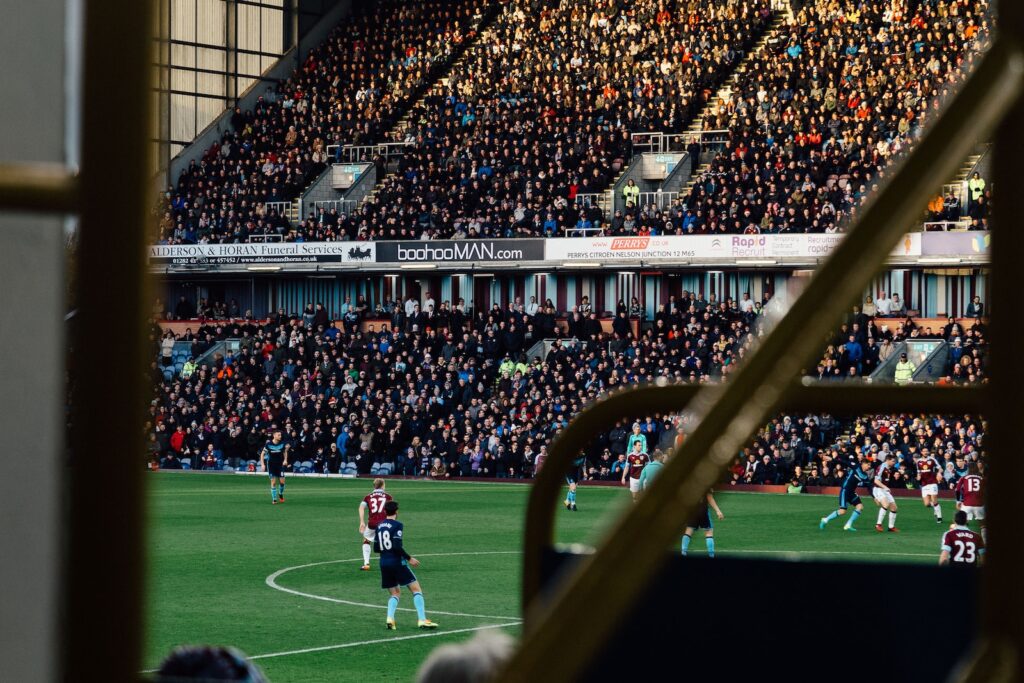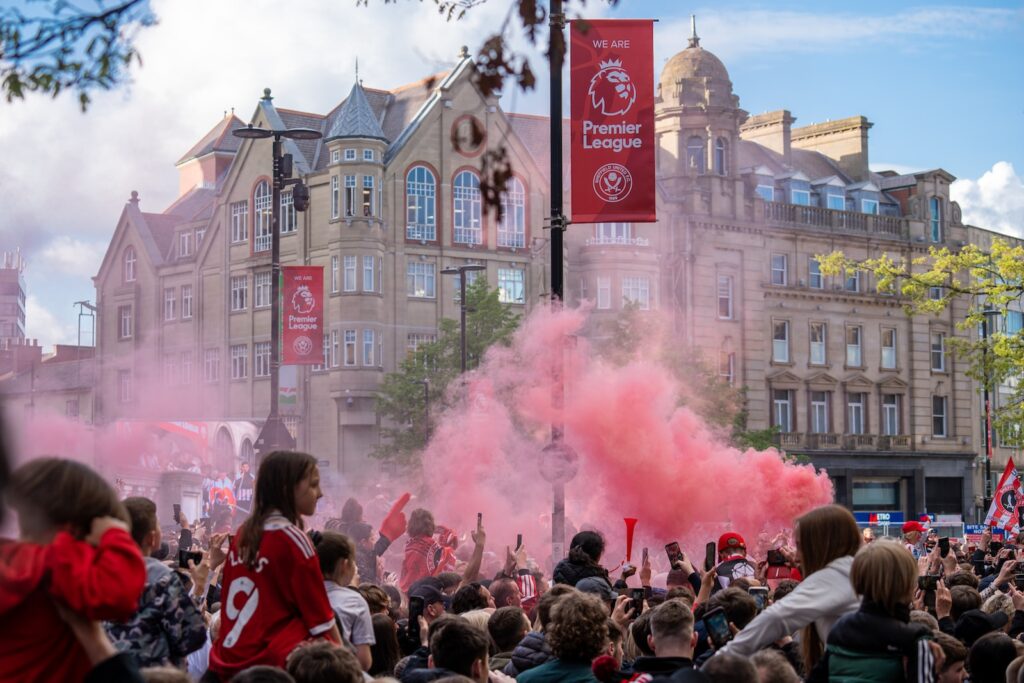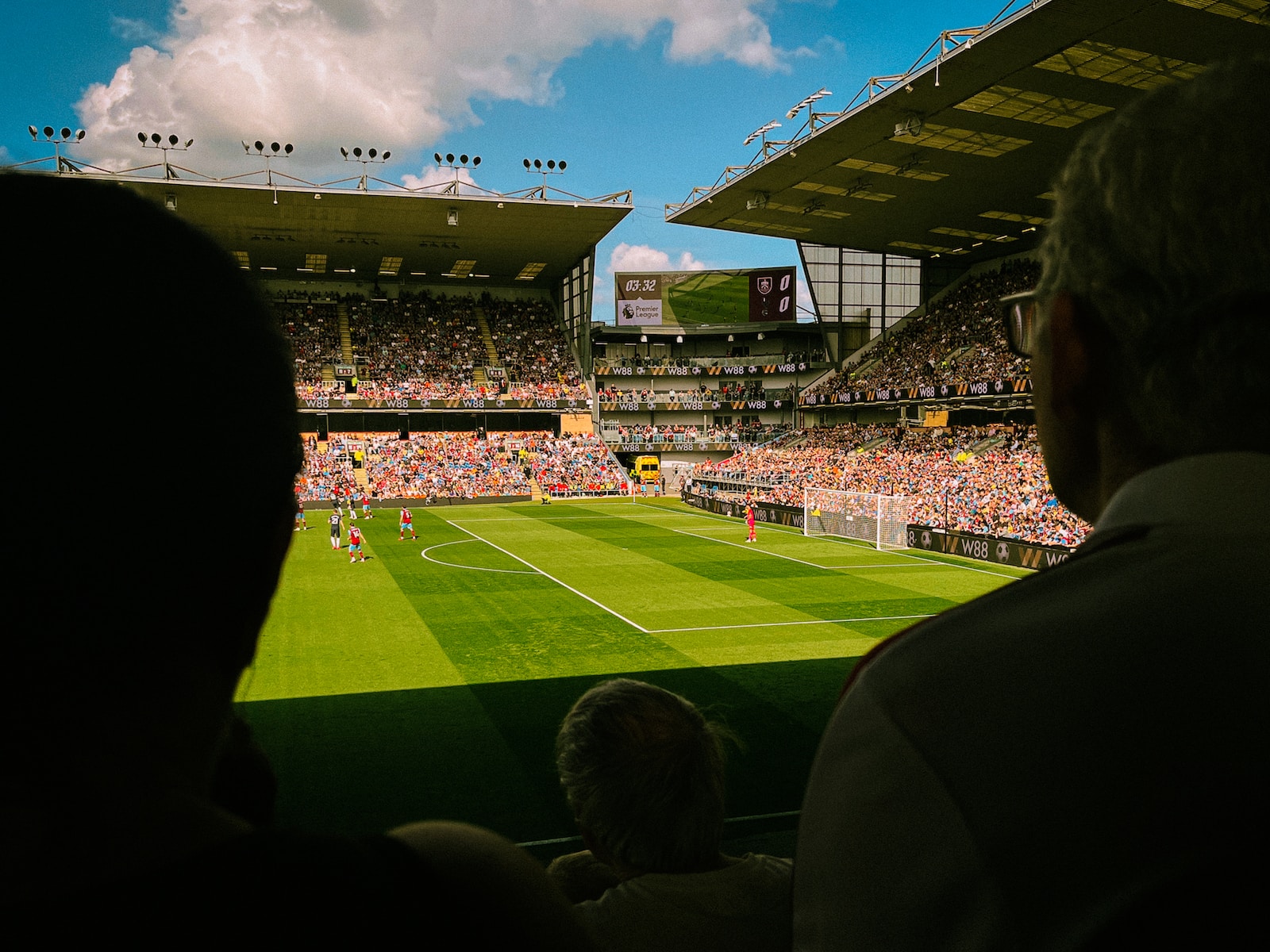Introduction
The Premier League, much like a masterful tapestry, weaves together athleticism, competition, and sheer human drama into an exhibition that captivates and enthralls a global audience. Since its inception in 1992, it has evolved from the humble beginnings of the Football League First Division to become a behemoth in the world of sports.
Its influence stretches far and wide, ensnaring the hearts of football fans from the bustling streets of London to the shimmering skyline of Shanghai.
The meteoric rise of the Premier League to the upper echelons of global sports is not merely a tale of athletic prowess; it is a saga embroidered with passion, dedication, and an unwavering commitment to the beautiful game. This article aims to whisk you away on a journey through the key factors behind the Premier League’s success and explore its enduring appeal that resonates across continents.
Imagine the energy within a packed stadium, the collective breath of thousands held in suspense as a striker approaches the goal. This is where the magic happens, and this is what has propelled the Premier League into becoming more than a league—it’s a cultural phenomenon.
It’s about the shared highs and lows, the camaraderie, and the stories that emerge from each match. The following narrative will unravel the threads that make the Premier League not just a football league, but a beacon of football fanaticism that shines across the globe.
The Appeal That Transcends Borders
- Global Reach: From the Americas to Asia and Africa, the Premier League’s fan base knows no bounds. The league’s ability to strike a chord in diverse cultures is a testament to its far-reaching influence.
- Cultural Impact: Beyond the pitch, the Premier League has become a part of the social fabric, influencing fashion, language, and lifestyle across its audience.
- Community and Identity: People across the world don’t just watch the Premier League; they live it. The league has a unique way of fostering a sense of community and identity among its fans.
In the coming sections, we’ll dive into the cradle of the Premier League’s history, discover the competitive spirit that fuels its fire, bask in the limelight of its star players, and feel the pulse of its passionate fan culture. We’ll also scrutinize the economic juggernaut it has become, understanding how this has both propelled its growth and sparked debates.
By the end of this exploration, you’ll be invited not just to read about the Premier League but to experience its vibrancy, its passion, and the unending excitement that keeps the world watching, week in, week out.
History of the Premier League

The Premier League, akin to a theatrical stage for the modern gladiator, has its roots deeply entrenched in the soil of English football history. Cast your mind back to 1992, when the Football League First Division clubs, in a trailblazing move, broke away to form what we now know as the Premier League. This seismic shift wasn’t just about a new name; it marked the advent of a football revolution.
The inception of the Premier League was a resolute response to the sport’s need for modernization and to harness the burgeoning potential of television rights. The league’s structure underwent a metamorphosis, transitioning from a battle of local pride to a choreographed dance of financial and sporting prowess. The introduction of the Premier League heralded a trend towards commercialization, with clubs transforming into global brands.
But what really happened? Let’s unpack the changes that sent ripples across the footballing pond:
- A switch to a single division from a multi-divisional competition structure.
- The promise of more lucrative television deals, which would elevate the clubs’ financial capabilities.
- An emphasis on quality over quantity, reducing the number of teams to create more high-stakes matches.
The numbers speak for themselves. The Premier League’s popularity exploded, like a firework in the night sky, catching the eyes of millions worldwide. Match attendances swelled, global viewership numbers soared, and the Premier League became the stage where footballing dreams were made and shattered.
Let’s snap a picture of the growth: Since its inception, the Premier League has enjoyed exponential increases in television revenue, from a modest £304 million in its first TV rights deal to a staggering £9 billion in the latest round of agreements. With such financial muscle, the Premier League clubs went from strength to strength, attracting the crème de la crème of footballing talent and delivering electrifying football week in, week out.
Fast forward to the present day, the Premier League’s transformation from the humble beginnings of English football to a global goliath is nothing short of a sporting fairy tale. Clubs like Manchester United, Liverpool, and Arsenal have become household names, synonymous with success and splendor, etching their legacy into the annals of football history.
Indeed, the Premier League’s journey is a testament to the power of innovation and the unrelenting pursuit of excellence — a tale of evolution that has turned a national competition into a global spectacle, and in doing so, has captured the hearts of football fans from every corner of the planet.
Competitive Nature of the Premier League
The Premier League, often likened to a gladiatorial arena where footballing titans clash, stands as the epitome of sports competition at its finest. With teams that have become household names globally, the league is akin to a season-long chess match, where strategies, player form, and the sheer unpredictability of outcomes coalesce to create a spectacle that keeps fans on the edge of their seats.
Amidst the roaring crowds and the electrifying atmosphere of the stadiums, the competitive nature of the Premier League unfolds. Here, David doesn’t just meet Goliath; he plays him twice a season, home and away.
The title race is not a sprint but a marathon that requires consistency, depth, and nerves of steel. In a league where any team can triumph over another on any given day, the excitement becomes as much a part of the weekly routine as a morning cup of coffee.
- Top Teams’ Tug of War: The Premier League is a battleground where the likes of Manchester United, Liverpool, and Chelsea, to name a few, are locked in a perpetual tug of war for supremacy. This seesaw battle for the title has not only heightened the league’s drama but also its global appeal.
- Unpredictability is the Name of the Game: Unlike some European leagues where one or two teams have historically dominated, the Premier League’s script is not one to stick to convention. Here, the underdogs have their day just as often as the favorites, and that’s a recipe for palpitations and plot twists aplenty.
- The Financial Muscle and Global Talent: The influx of financial resources has seen clubs attract global talent, further intensifying the competition. This financial muscle is a double-edged sword; it raises the stakes and the standard of play, but also brings with it a thrilling unpredictability. One only needs to look at Leicester City’s fairy tale victory in 2016 to understand the sheer magic that money and management can conjure.
The fuel that powers this competitive fire comes from far and wide. Footballers from every corner of the globe bring not only their skills but also diverse tactics and playing styles, making the Premier League a melting pot of footballing excellence. It’s a league where a tactical masterclass meets individual brilliance, where a manager’s game plan can be upended by a moment of magic from a world-class superstar.
The result is a league that is not just watched, but studied and debated by fans worldwide. From the bustling streets of Bangkok to the bustling metropolises of Europe, supporters dissect each match with the fervor of scholars poring over ancient texts. Each game is a chapter in an unfolding story, one that is crafted with the ink of sweat and the pen of a football boot.
It’s no wonder that the Premier League has cemented itself as a global phenomenon. The competitive nature weaves a narrative of triumph and heartbreak, of giants and giant-killers, that resonates well beyond the shores of the United Kingdom. It is this indomitable spirit of competition that ensures the league’s heartbeat is felt across continents, pulsing in the veins of millions who live and breathe football.
Global Reach and Audience

The Premier League is not just a football league; it’s a sprawling vine that has wrapped itself around the globe, its tendrils reaching into the hearts and homes of millions. In coffee shops in Kuala Lumpur, bars in Buenos Aires, and living rooms in Lagos, the crescendo of cheers for Premier League fixtures is as fervent as it is within the hallowed walls of Old Trafford or Anfield. This international courtship began rather humbly but has since exploded into a full-blown love affair with fans across continents.
At the heart of this global embrace are the international broadcasting deals, which serve as the league’s passport to the wider world. These deals are not merely business transactions; they are the magic carpets that whisk away fans to the electrifying atmosphere of English stadiums, week in, week out. From live matches that span the time zones to the tailored commentary that reverberates in dozens of languages, the Premier League has become a fixture in the global sports calendar.
Touching Down Across Continents
- Asia – The league’s influence in Asia is as staggering as a last-minute goal. Fans congregate in the wee hours of the morning to watch their beloved teams battle it out.
- Africa – In Africa, it’s not uncommon to see streets and alleyways adorned with jerseys of Premier League clubs, a testament to the league’s exhilarating impact.
- The Americas – From North to South America, the narrative is no different. The Premier League’s influence stretches from the icy terrains of Canada to the sun-kissed beaches of Brazil.
This phenomenal growth is more than just a testament to the league’s quality; it’s a reflection of the human desire to be part of something larger than life. The inclusivity of the league, the shared passion for the beautiful game, has erased borders and birthed a global football community. The diverse fanbase includes ardent supporters who wake up at ungodly hours just to witness ninety minutes of footballing brilliance.
One cannot discuss the global reach of the Premier League without acknowledging the role of technology. The advent of the internet and social media platforms has catapulted the league into an omnipresent force in the sports world. Now, a fan in Nairobi can relive highlights on their smartphone just as a spectator in Newcastle can.
This digital revolution has democratized the viewing experience, ensuring that the Premier League is not just watched, but also interacted with, debated, and celebrated in every corner of the globe.
Indeed, the Premier League’s global audience is a colorful tapestry woven with the threads of shared emotions, nail-biting finishes, and collective celebrations. It’s not just the football; it’s the universal language that it speaks, drawing everyone, regardless of nationality, into its exhilarating fold. As the league continues to cultivate its international relationships, the only question that remains is not if, but how much further this global phenomenon will grow.
Star Players and Iconic Moments
The Premier League is not just a competition; it’s a stage where heroes are made and legends are born. It’s the star players with their balletic grace on the pitch and their ability to snatch victory from the jaws of defeat that turn the beautiful game into an art form. These maestros of the field become the architects of moments that are etched in the memory of fans forever.
Think of the sheer, unadulterated magic of a Thierry Henry volley, the gravity-defying leaps of Cristiano Ronaldo, or the mesmerizing dribbles of Eden Hazard. These players are more than athletes; they are the beating heart of the Premier League narrative, captivating audiences with each touch of the ball. Their influence extends far beyond the pitch, as they become international icons and the faces of football for millions around the globe.
- Thierry Henry’s legacy at Arsenal, including his infamous backheel goal against Charlton, is the stuff of legend.
- Cristiano Ronaldo’s rise to stardom at Manchester United signaled not only the prowess of his own career but also the League’s ability to foster talent.
- Sergio Aguero’s last-minute goal to win Manchester City their first title in 44 years is a storyline you’d dismiss as too fanciful for fiction.
Let’s dive into the archives and dust off the reel of memories that rolls like a highlight montage. Iconic moments—like a phoenix rising from the ashes—have defined the Premier League. Liverpool’s improbable comeback in Istanbul, Manchester United’s stoppage-time triumph in 1999, or Leicester City’s fairy-tale run to glory in 2016; these are not just chapters in a footballing annual, they are epic sagas that rival the most poignant of Greek myths.
It’s not just the on-field antics that create ripples across the pond of footballing culture; the rise of social media has multiplied the effect. Twitter, Instagram, and Facebook have become the global town square where fans and players interact, celebrate and sometimes commiserate. The virality of a goal, a trick, a flick, or a save travels faster than a striker on a breakaway, cementing the Premier League’s place in daily conversations and debates.
One cannot simply recount the endless list of moments that have shaped the Premier League into what it is today. Each game has the potential to produce a jaw-dropping, edge-of-your-seat spectacle that could be talked about for generations. To witness a star player at their peak or to be part of a historic moment is to be a part of football’s ongoing narrative—a narrative that is beautifully unpredictable and endlessly thrilling.
The beautiful game owes much of its allure to these extraordinary individuals and the unforgettable scenes they produce. As we reminisce on past glories and anticipate future feats, the Premier League continues its reign as a global phenomenon, unifying fans through a shared love for these star players and the iconic moments they create.
Fan Culture and Support

Imagine, if you will, a sea of colors, the roar of voices singing in unison, flags waving like a forest caught in a gale – this is the fan culture of the Premier League, the very lifeblood of the footballing world. This isn’t just a sport; it’s a weekly pilgrimage, a theater of dreams for supporters who wear their hearts – and their club’s crest – on their sleeves. The Premier League has cultivated an ardent fan base, whose loyalty and passion are the envy of sporting leagues worldwide.
At the core of the Premier League’s fan culture lies a profound sense of community and identity. Each club is more than just a team; it’s a narrative interwoven with the lives of its fans, chapters filled with triumphs and heartbreaks alike. For many, their club’s history is a patchwork of personal memories, stories passed down through generations like treasured heirlooms.
Passionate Fan Base
Within the bustling stadiums, fan culture is a vibrant tapestry of tradition and modernity. Supporters range from those who’ve held season tickets for decades to younger fans buzzing with the electric energy of their first matchday experience. The league’s ability to foster such intense loyalty is nothing short of remarkable, and nowhere is this more evident than in the hallowed grounds of Anfield, Old Trafford, or the Emirates Stadium – each a mecca for the faithful.
The 12th Man Effect
During matches, the fans become the ‘12th man’, a tidal wave of support that can shift the momentum of a game. The atmosphere in the stands is tangible, almost palpable, with every chant and cheer. This communal spirit is the spine of the Premier League, ensuring that no game is just a game; it’s an event, a collective experience that transcends age, background, and geography.
Global Community
- Worldwide Supporters Clubs – From the bustling streets of Bangkok to the high rises of New York, there are fan clubs uniting supporters across the globe.
- Matchday Rituals – Across different time zones, fans wake up at dawn or stay up late, just to catch their team in action, often gathering in local pubs or at fan events to watch together.
- Digital Togetherness – Social media platforms have become virtual stadiums where fans share their joys, sorrows, and predictions, creating a 24/7 fan culture that never sleeps.
The Premier League’s fan culture is also a melting pot of global influences, a testament to the league’s far-reaching appeal. This has allowed it to not only shape but be shaped by its diverse fan base, making every match a celebration of cultural exchange.
Fan support in the Premier League is not a fair-weather friendship; it’s a bond as steadfast as the British Bulldog spirit. Whether basking in the glory of victory or weathering the storm of defeat, fans are the beating heart of their clubs. It’s this undying support that helps maintain the Premier League’s status as not just a football competition, but a cultural phenomenon – a communal dance of hope, belief, and unwavering loyalty.
Economic Impact and Growth of the Premier League
As the eye of the football world often turns to the Premier League, it’s not hard to see why. The league is not just a sporting spectacle; it’s a thriving economic powerhouse that has a monumental impact on clubs, players, and local communities. The financial clout of the Premier League is akin to a Midas touch, turning almost everything associated with it to gold, and its wealth shows no signs of waning.
Economic Influence on Clubs and Beyond
The first whistle of the Premier League season heralds a financial windfall for its clubs, with television rights deals broadcasting the drama to an international audience and filling club coffers. With a global audience comes global revenue, and the Premier League has been leading the charge. Gate receipts, merchandise sales, and sponsorship deals further contribute to this dynamic:
- Television Rights Deals: The broadcasting rights are a golden goose for the Premier League. Recent deals have skyrocketed, with figures going into the billions, ensuring a generous distribution of funds across all participating clubs.
- Merchandising: From the shirts on fans’ backs to the myriad of branded paraphernalia, merchandising is a lucrative stream of income that spreads the league’s influence far beyond the pitch.
- Sponsorship Galore: Companies are queuing up to associate their brands with the Premier League, with title sponsorships and individual team endorsements providing a substantial financial injection.
Financial Success and Global Appeal
The economic success of the Premier League has been a cornerstone of its global appeal. The influx of wealth allows teams to attract and retain the world’s best players, further enhancing the league’s competitive nature and international charisma:
- Attracting Global Talent: The financial capability of Premier League clubs makes them a magnet for footballing talent, adding a diverse flair to the teams and enriching the fan experience.
- Investment in Infrastructure: Economic prosperity has paved the way for state-of-the-art stadiums and training facilities, cementing the league’s reputation as a premier destination for football.
Yet, it’s not just the clubs that bask in the glow of the Premier League’s economic success. Local communities also reap the benefits, with job creation and community development programs often associated with club initiatives, turning match day into a boon for local businesses as well.
Challenges and Criticisms
However, with great wealth comes great scrutiny. The Premier League’s financial model has faced criticism, with concerns about sustainability and inequality among clubs. Some argue that the financial muscle of the top clubs creates an uneven playing field, potentially stifling competition. Despite these challenges, the league continues to flourish, balancing the scales of success and ambition like a world-class juggler.
In essence, the economic impact and growth of the Premier League is a tale of success, woven into the very fabric of the game. It’s a narrative that not only charts the league’s ascent to the pinnacle of football but also underscores its position as a global juggernaut, with a reach that extends far beyond the hallowed turfs of its stadiums. As long as the beautiful game continues to captivate hearts, the Premier League’s economic engine will likely continue to hum, powering a future of both prosperity and passion.
Conclusion
As we journey through the incredible narrative of the Premier League, we arrive at a compelling conclusion: the league’s success is a tapestry, intricately woven with high-octane matches, ardent fanbases, and a cavalcade of stars that light up the pitch and our screens. This football phenomenon has transcended borders, language barriers, and cultural differences to become a global juggernaut, captivating the hearts of millions.
What began as a reinvention of English football in 1992, has burgeoned into a spectacle that dominates weekends and conversation globally. The Premier League is not just a football competition; it’s a cultural icon, a weekly drama filled with heroes, villains, and plot twists that would leave even the finest novelist in awe.
- Unpredictable Outcomes: At the core of the Premier League’s appeal is the sheer unpredictability of results. David can defeat Goliath on any given matchday, making every game a potential headline-maker.
- Star-studded Cast: The league’s ability to attract the cream of footballing talent ensures that the spotlight never dims on this grand stage. The likes of Salah, De Bruyne, and Ronaldo have become household names, each with their own entourage of global fans.
- Economic Growth: Financially, the Premier League is a titan, with lucrative broadcasting deals and commercial partnerships that dwarf other leagues and contribute to a virtuous cycle of investment and growth.
- Passionate Fan Culture: The fans, with their unwavering support and vibrant fan culture, transform stadiums into modern-day coliseums, where glory and heartbreak unfold in equal measure.
Yet, beneath the glitz and glamour, the league has its challenges. Critics point to the vast wealth disparities and the risks of financial overextension. But like a gritty protagonist unfazed by adversity, the Premier League seems poised to tackle these issues head-on, ensuring not just survival, but prosperity.
As we peer into the crystal ball, the future of the Premier League holds a promise of continued evolution. With technology and social media shrinking our world, the league’s potential seems boundless, limited only by the imagination of its stakeholders. The diaspora of fans across continents is a testament to the league’s global narrative, one that is constantly being written by the boots of its players and the voices of its supporters.
Whether you’re a die-hard fan or a casual observer, there’s no denying the electric atmosphere that the Premier League conjures up every matchday. It beckons you to be part of the saga, to feel the pulse of the crowd, and to bask in the ballet of football at its finest.
So, lace up your boots, warm up your vocal cords, and join the legion of fans who live for the weekend when the Premier League comes to life. It’s not just a league; it’s a way of life, a pulse that beats in unison across the globe, a phenomenon that continues to captivate and inspire. The beautiful game, indeed, has found its crowning glory in the Premier League.

